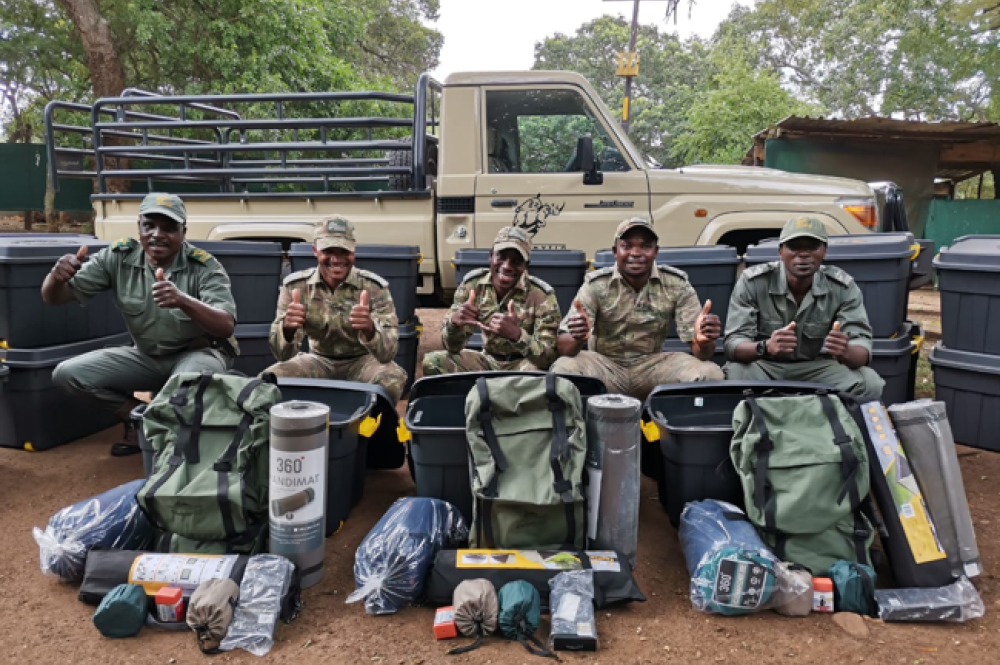Rhino poaching does not simply ‘happen’. Like a classic jewellery heist, the criminals will plan meticulously, detailing every step to reduce the risk of being caught. Poachers will know exactly where to enter a park or reserve, where they might find a rhino, and how best to escape before being apprehended.
The illegal wildlife trade is the world’s fourth largest illegal trade (after counterfeiting and people and drug trafficking) so such painstaking planning may come as no surprise to you. Of course, this means that rangers and law enforcement agencies are always on the alert for information that can help them to act quickly and prevent poaching incursions before they start.
Advance intelligence often leads patrols to intensify their activities in certain areas of a park or reserve, deterring potential poaching activity. If poachers do attempt to enter, they are much more likely to be caught before they are able to find a rhino.
At Hluhluwe-iMfolozi Park (HiP) in South Africa, ranger teams are constantly gathering intelligence about poaching gangs operating in the area. Working with other law enforcement authorities and the wider community, HiP’s team aims to uncover the ‘who’, ‘what’, ‘where’ and ‘when’ of any potential incident. They act immediately on this information to counter the poaching threat and save rhinos from a horrendous fate. Often this work requires rangers to spend extended periods in one area of the Park’s wilderness, camping out for up to three weeks at a time, staying on high alert 24/7. Operations like these need the right equipment.

Between April 2019 and March 2020, generous donations from our supporters and partners purchased 130 extended camping kits for HiP’s rangers. This extra equipment* is enabling more rangers to camp at short notice for extended periods of time, being the eyes and ears on the ground in areas frequented by poaching syndicates. Remote ranger teams in the bush can detect criminal activity almost immediately, react quickly and stop poachers before lives are lost.
Since the outbreak of Covid-19, despite the lockdown in South Africa, rangers have continued their important work to protect wildlife across Hluhluwe-iMfolozi. Thankfully, the South African Government has reported that fewer rhinos have been poached since the country’s lockdown began in March. But without the commitment of HiP’s rangers and others like them, this may not have been the case.
As South Africa, like many other countries across the world, begins to ease out of lockdown, we are continuing to support HiP’s rangers. Poaching may have slowed during lockdown, but no one knows what will happen once it is lifted. The loss of tourism income has had a devastating impact on the resources of many parks and reserves across the region, making it harder than ever to purchase essential equipment, like gloves, masks and hand sanitiser, to keep rangers safe.
Throughout June, your donations to our Rhino Covid-19 Crisis appeal are helping HiP cover some of these unexpected costs, so that rangers can continue to protect rhinos and the vast wilderness they call home.
*Each kit, which is kept in a black container, comprises the following items:
- backpack
- backpack sheet cover
- tent
- ground sheet
- roll mattresses
- sleeping bag
- gas cooker
- 30,000ma powerbank to charge more devices and mobile phones whilst camping
- poncho rain suit









